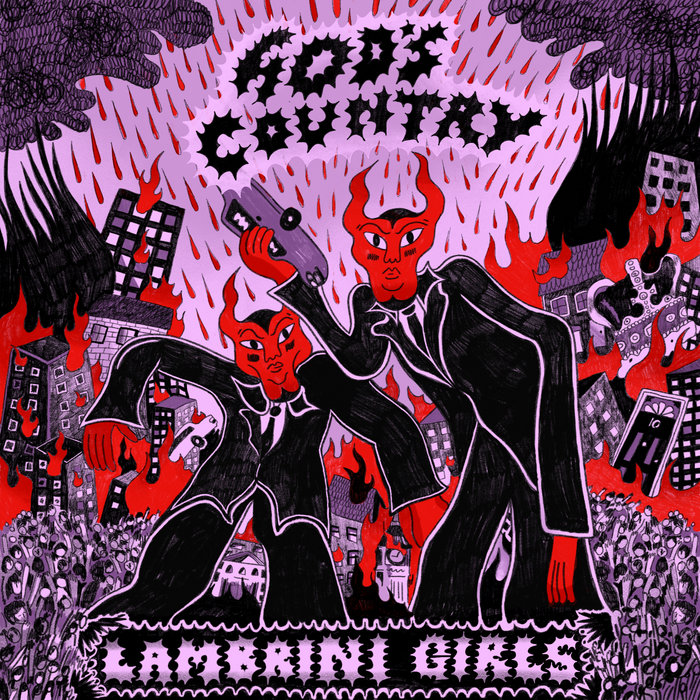
God’s Country – Lambrini Girls
this blog is GROOVY – check out great Soul, Funk, Jazz, Hip Hop, Bass, Breaks , Reggae, House n many more TUNES
Queerpunk is like that unexpected twist in your favorite song—a lively mashup of punk’s raw energy and the vibrant spirit of queer culture. Although often overlooked, this genre has an impressive history filled with rebellion, creativity, and a good dose of humor. Buckle up as we dive deep into the colorful world of queerpunk!
Queerpunk emerged from the chaotic streets of punk rock in the late 1970s and early 1980s. As bands like The Sex Pistols and The Ramones blazed onto the scene with loud guitars and anti-establishment lyrics, queer artists began to carve out their own unique space within this audacious movement.
In NYC’s East Village—a hub for artistic expression—queer musicians started embracing punk without holding back on identity politics or sexuality. Think about it! What could be more punk than being unapologetically yourself? Groups such as The Cramps, known for their theatrical performances blending horror aesthetics with rockabilly vibes, were some early pioneers exploring gender fluidity.
One standout figure was Jayne County, one of the first transgender punk icons who took charge not just of her music but also her narrative. With hits like “Man Enough to Be a Woman,” she became a beacon for those whose voices were often drowned out by societal norms.
Imagine spiky hair colliding with glittery outfits—that’s where queerpunk truly shines! This genre isn’t afraid to embrace campiness; it’s all about expressing individuality while throwing tradition out the window.
Take CocoRosie, for instance. These sisters fuse folk melodies with hip-hop beats while donning wacky costumes combining elements from various eras—all while infusing their songs with parodic lyrics that challenge mainstream narratives around gender and sexual identity.
Pansy Division — One band that tickles our funny bone is Pansy Division, formed in 1991 as one of the first openly gay pop-punk bands. Their catchy tunes include cheeky tracks like “I’m Gonna Make You Love Me” which centers on love—while keeping things delightfully humorous.
Peaches — No list would be complete without mentioning Peaches! She bursts onto stages packed with provocative performance art that challenges sexual norms (and everyone’s comfort zones). Her anthem “Fuck The Pain Away” redefined party music—the perfect mix between infectious beats and audacious messages.
Against Me!’s Laura Jane Grace — When Laura came out as transgender in 2012, she didn’t just redefine what it meant to be ‘punk’; she also inspired many others struggling through similar journeys. Her album Transgender Dysphoria Blues showcased both personal struggle and empowerment underpinned by guitar-driven tracks that’ll make you want to mosh—and maybe shed a tear too!
Wendy Carlos – Before delighting us all with her electronic compositions (hello A Clockwork Orange soundtrack!), Wendy recorded an experimental album called Switched-On Bach using Moog synthesizers… wearing homemade wigs made from hair extensions!
In true queercore fashion… members from different bands sometimes “borrowed” clothes during shows! It wasn’t unusual back then for drag queens to hit up a gig in oversized jackets borrowed straight off punks’ backs—for maximum fabulousness!
Some musicians have even blurred lines so much they create parody names based on famous songs; think “I Will Survive” turning into “I Will Survive (While Wearing Sequins)” performed at underground venues—it was pure gold!
4.Speaking about fashion mishaps… rumor has it during one particularly wild show at CBGBs (the iconic venue), lead singer of The Bouncing Souls accidentally stage-dived right into Ann Margret dressed as Elvis impersonators leading to hilariously awkward moments—but hey, that’s queerpunk magic right there!
As time rolled forward into the ’90s – ‘00s – beyond… Queerpunk continued evolving alongside movements such as Riot Grrrl which tackled feminist issues head-on through musical pursuits blended seamlessly within DIY aesthetics showcasing powerful messages echoed throughout scenes worldwide—from festivals celebrating LGBTQ+ rights across cities worldwide down to local garage spaces buzzing excitement among community members ready share stories together through rhythm-and-beat-infused creations .
Today , both well-known artists + emerging talent continue pushing boundaries—even inspiring new genres drawn upon eclectic influences indicative diversity found within alternative subcultures . It’s clear : queerness adds flavor , authenticity giving vibrancy depth across sonic landscapes reminding us anyone can define what being themselves means no matter how unconventional might appear !
So there you have it—queerpunk isn’t just another niche genre tucked away in music history! It’s an exhilarating celebration mixing chaos & laughter intertwined identities boldly proclaiming freedom . With each beat comes stories told highlighting journeys lived reflecting resilience against oppression encouraging future generations amplify voices others tirelessly worked uplift—so go ahead jam out discover your inner queerkid rebel ! 🌈🎸

God’s Country – Lambrini Girls